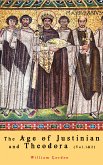In "Roman Britain in 1914," F. Haverfield meticulously surveys the complexities of Roman rule in Britain, blending archaeological evidence with historical narrative to illuminate the intricacies of social, political, and military dynamics during this pivotal era. Haverfield employs a scholarly yet accessible literary style, enriched with detailed footnotes and evocative descriptions, situating the reader within the broader context of imperial history. His work stands as a critical examination of Britain's Romanization and its implications, offering insights that resonate with contemporary debates surrounding heritage and identity. F. Haverfield, a distinguished archaeologist and historian of the early 20th century, played a pivotal role in shaping the study of Roman Britain. His extensive fieldwork and engagement with the contemporary scholarly discourse of his time reflect a deep-seated passion for uncovering the vestiges of the past. Haverfield's academic journey, coupled with his experiences during the formative years of archaeological methodology, positioned him uniquely to create a nuanced portrait of Roman Britain at a time when national identity was undergoing significant transformation. This book is an essential read for anyone interested in the intersection of history, archaeology, and cultural studies. Haverfield's expertise and compelling storytelling provide valuable insights into the complexity of ancient Rome's influence on British society, making it a significant contribution to the field. Scholars, students, and general readers alike will find profound value in Haverfield's rich narrative and critical analysis.
Dieser Download kann aus rechtlichen Gründen nur mit Rechnungsadresse in A, B, BG, CY, CZ, D, DK, EW, E, FIN, F, GR, H, IRL, I, LT, L, LR, M, NL, PL, P, R, S, SLO, SK ausgeliefert werden.









